
Back in January, Gibson Brands gave us a sneak peek of some of the year’s releasses in an exclusive pre-NAMM media event. At that point, our attention was grabbed by the natural headliner – the forthcoming Dave Grohl DG-335 – but once we were done gawping at the Foo Fighters’ man’s signature guitar, our eyes were quickly caught by a stunning pair of Firebirds.
Now Epiphone has officially launched those models: the Inspired by Gibson Custom 1963 Firebird I and the HH-configured 1963 Firebird V.
The two mark the latest additions to the brand’s luxed-out top tier line, created in collaboration with the Gibson Custom Shop, which aims to offer guitarists some of the refinements of Gibson’s classiest vintage recreations at a friendlier price point.
“Epiphone and the Gibson Custom Shop have teamed up again to create the Inspired by Gibson Custom 1963 Firebird V [and I] – an authentic replica of the guitar designed by legendary automotive designer Ray Dietrich,” says Epiphone.
“When it was launched in 1963, the Firebird was Gibson’s first neck-through-body model, and it went on to be used by players in a wide range of genres, including blues legend Johnny Winter, Keith Richards and Brian Jones of The Rolling Stones, Eric Clapton, and Phil Manzanera of Roxy Music, to name a few.
“The Epiphone Inspired by Gibson Custom 1963 Firebird V delivers vintage Firebird specifications at an accessible price... , giving this remarkable recreation not only the look but also the sound of a classic Firebird V.”
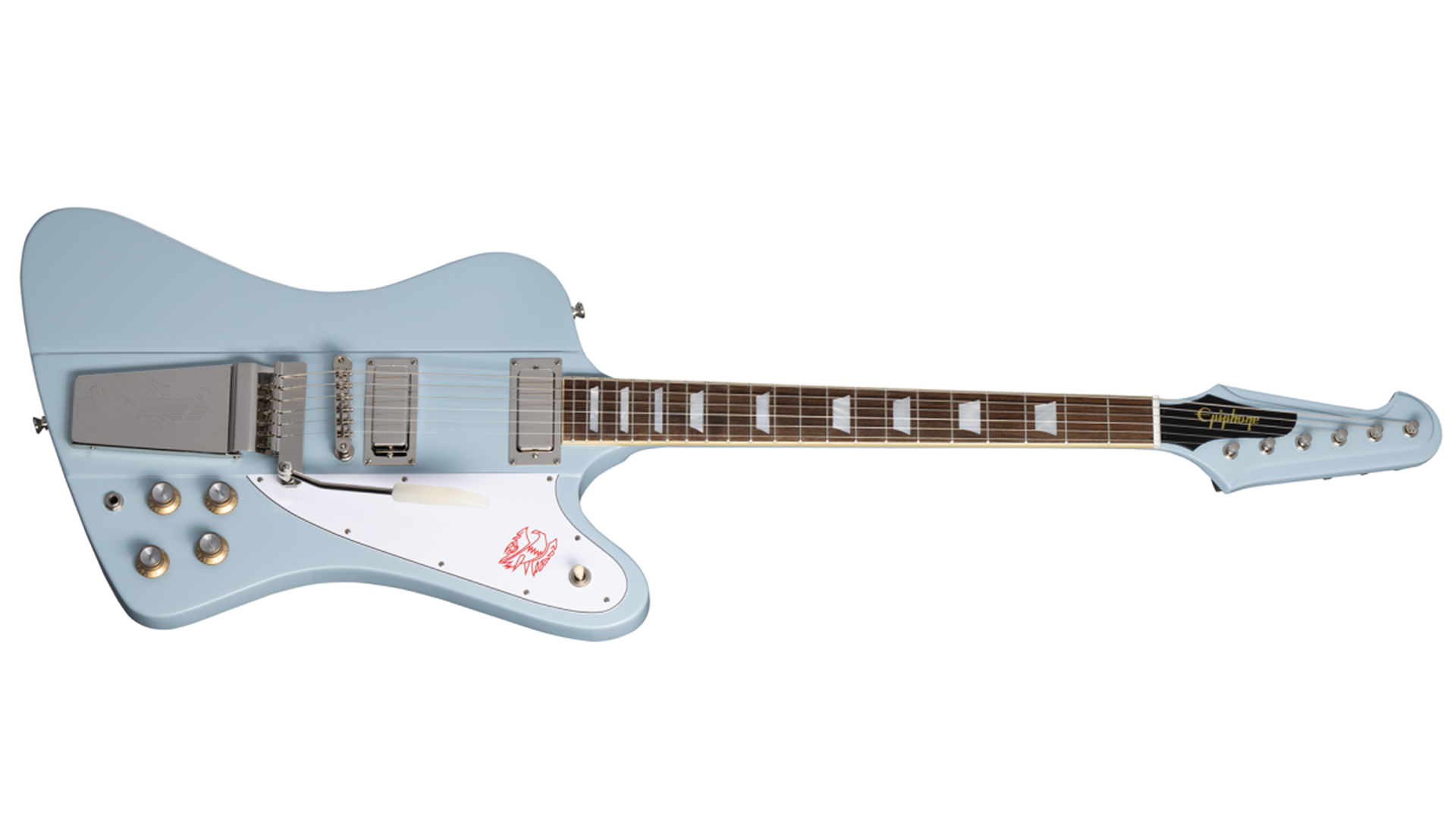


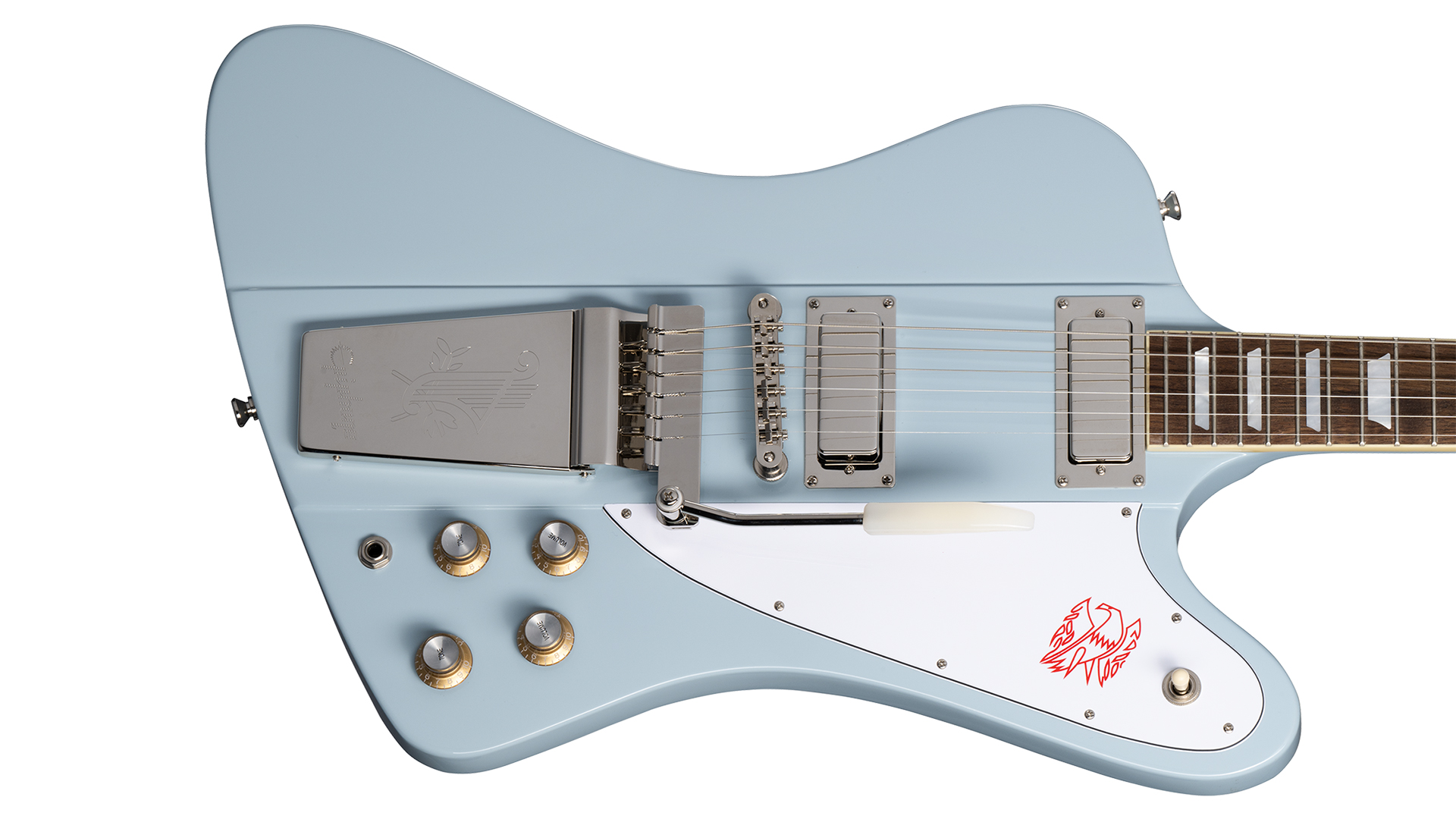
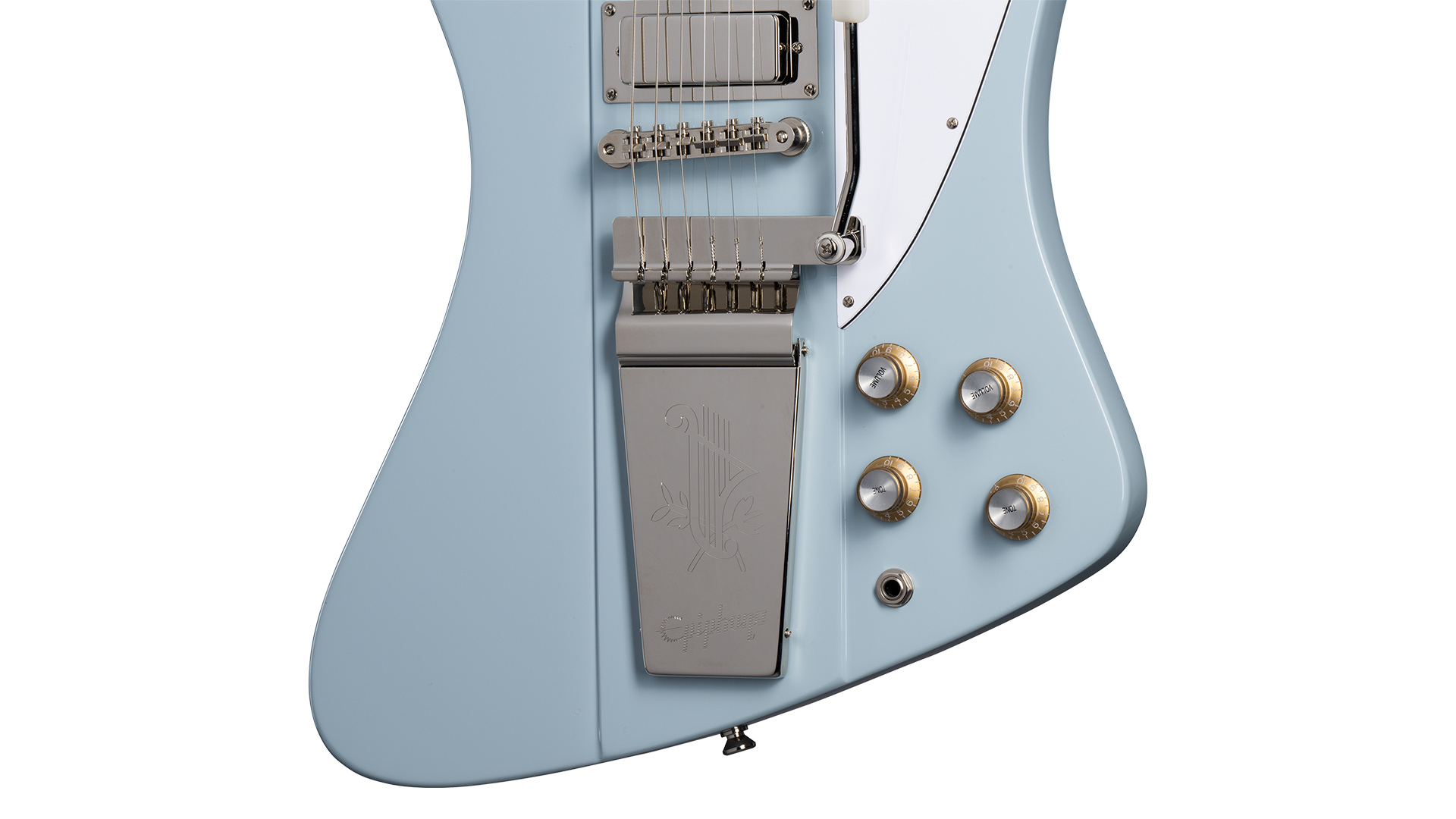
Both the V and I share the same nine-ply mahogany/walnut neck-through construction, with mahogany wings, plus an Indian laurel (as opposed to rosewood) fretboard and mother of pearl trapezoid inlays.
The neck is modeled after the classic 1963 Firebird profile – and, as is the case with its Inspired by Gibson Custom brethren, including the Epiphone Greeny and Adam Jones 1979 Les Paul Custom – they come loaded with Gibson USA pickups: in this case, the much-loved Firebird mini-humbuckers (which use Alnico V magnets).
The other electronics are all top-tier, too, with handwired CTS pots, Mallory capacitors and Switchcraft toggle switch (on the Firebird V) and output jack.
Hardware includes the classic three-ply white pickguard with the red Firebird logo, Kluson banjo-style Planetary tuners and the historically-correct three strap button positions.
The V offers a combination of Epiphone ABR bridge (featuring individual string saddles) and Maestro vibrola, while the I opts for a simplified hardtail setup of a wraparound Lightning Bar bridge.
Both options have their appeal: the Firebird V looks and feels more luxurious – and offers a wider variety of tones (with its HH configuration and vibrato), plus adjustable intonation at the bridge is always handy.
Meanwhile, the Firebird I nails that single-pickup utilitarian vibe that is an equally proud part of Gibson’s lineage – most notably, across the likes of the Les Paul and SG Junior builds. At $1,299, it’s also considerably more affordable than the V.
In fact, the Inspired by Gibson Custom Firebird V now takes the crown as the priciest Chinese-made Epiphone build, at a not-insignificant $1,799.
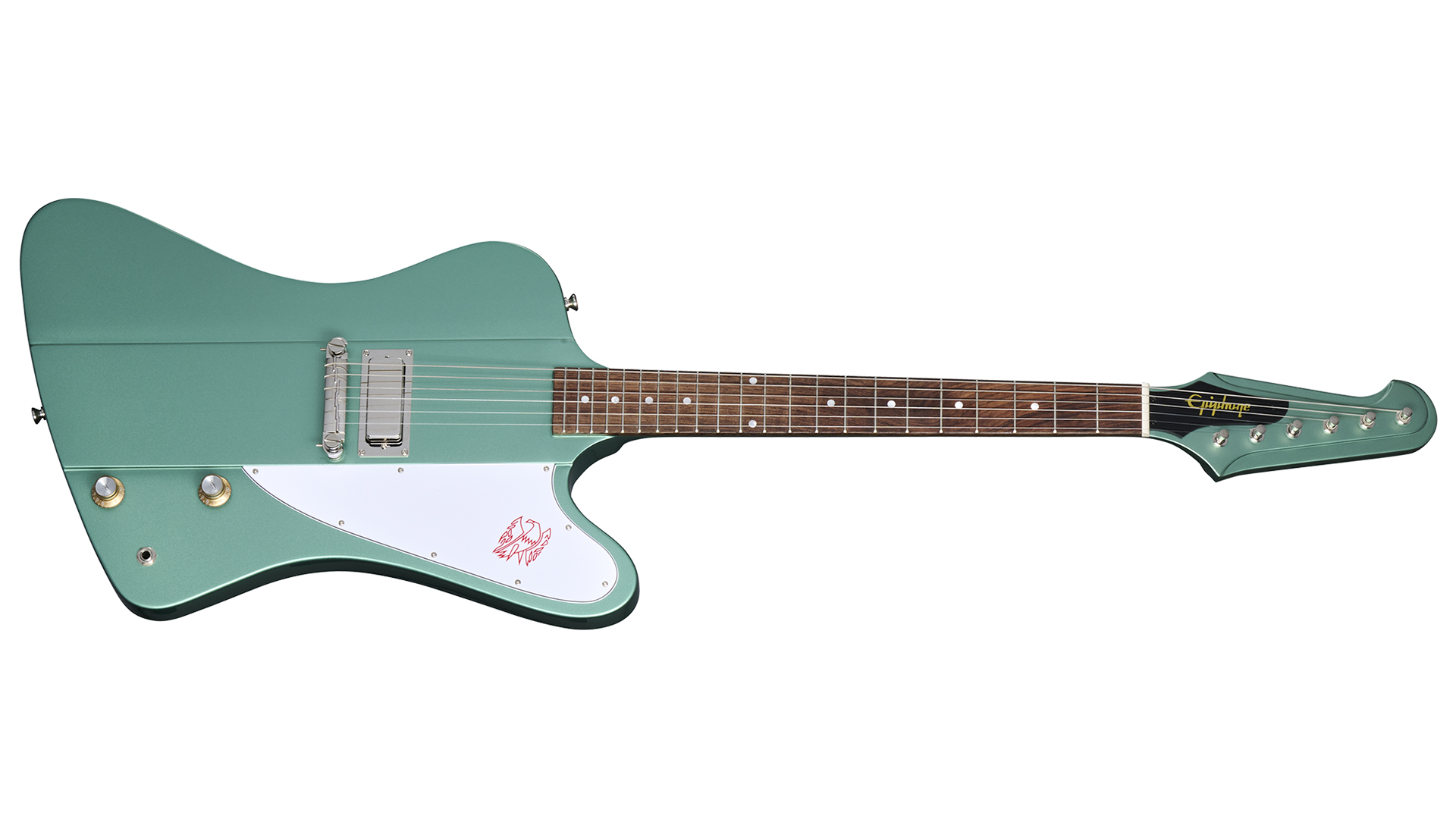
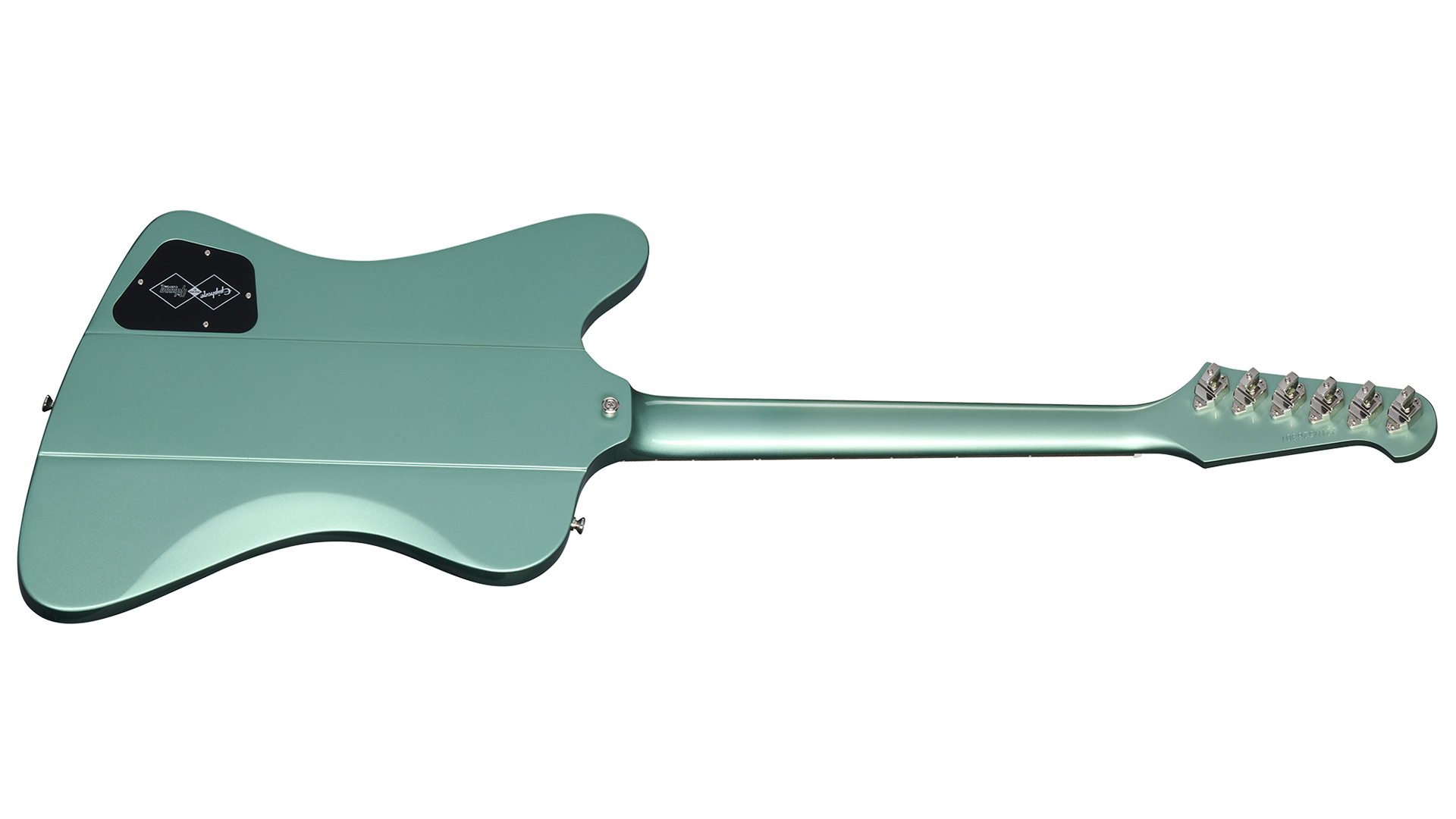


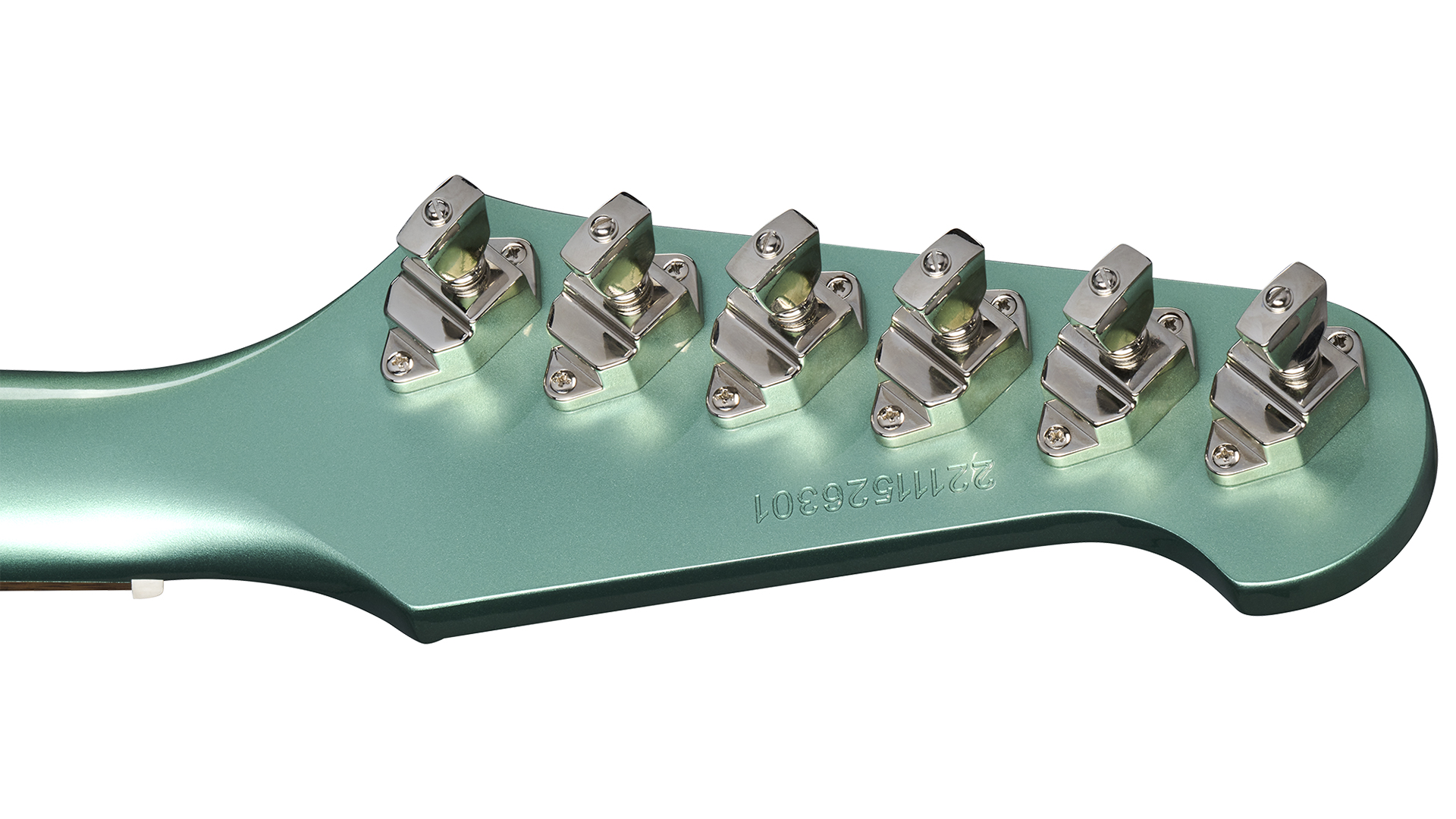
Regardless, they both look utterly stunning – with the Firebird I available in Heather Poly, Silver Mist and (our personal favorite) Inverness Green, and the Firebird V finished in a choice of Frost Blue and Ember Red.
The instruments we saw in our January preview were very promising – and, a month on, the spec list does not disappoint.
As for their respective price tags, well, both come with Epiphone Inspired by Gibson Custom hardshell cases – and that nine-ply walnut/mahogany construction is a much trickier (and therefore pricier) process than, say, the Les Paul’s slab and top.
What’s more, it looks like Epiphone’s done this right – getting as many of the vintage details as correct as possible (the reverse headstock, the banjo tuners). It’s also filling a gap left in the broader Gibson range at a point when Firebirds can be hard to come by. Indeed, there are no standard USA Firebirds in the Gibson lineup right now.
Nonetheless, this might be a good time to point you to our piece on why guitars are getting more expensive...
Both instruments are available for pre-order now. For more information, head to Epiphone.







